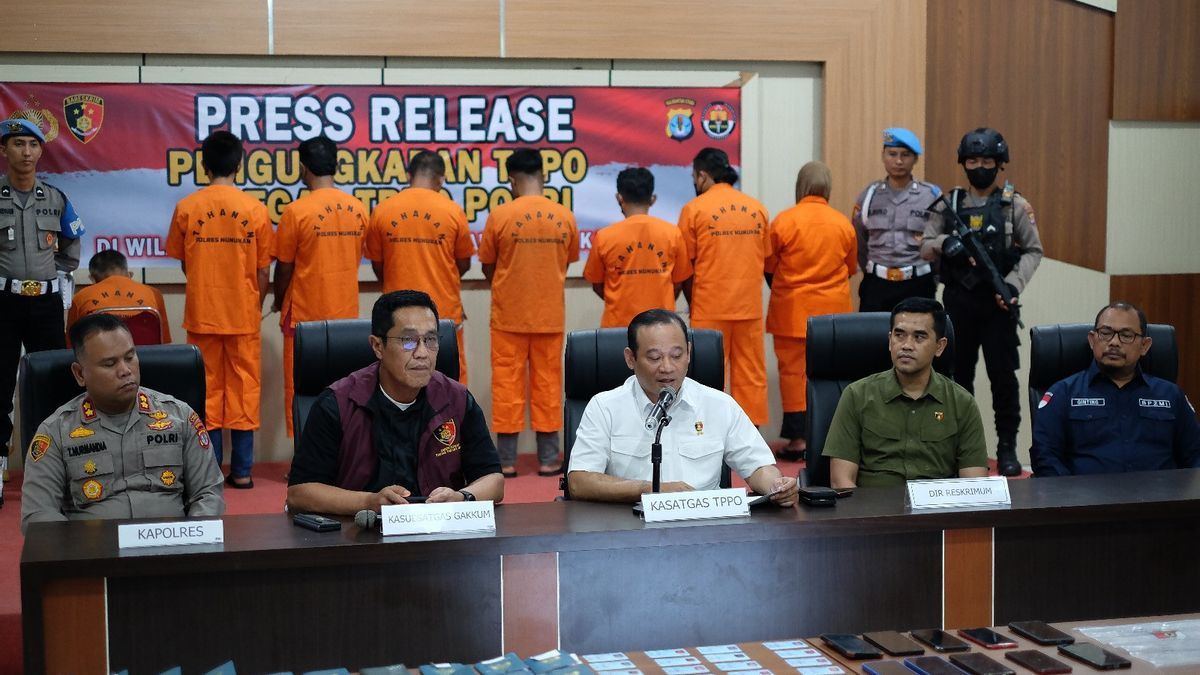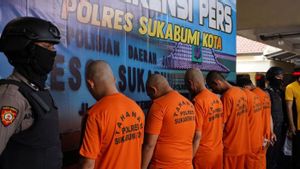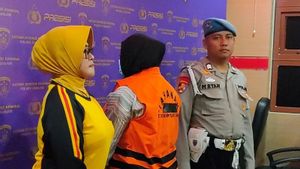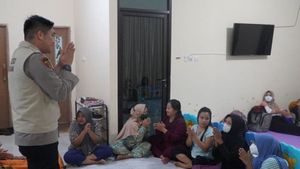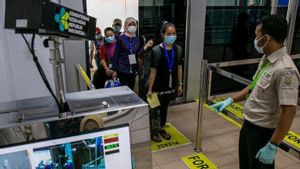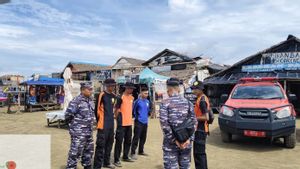JAKARTA - Commission IX of the House of Representatives encourages the government to tighten the Indonesian Migrant Workers Departure (PMI) system in order to prevent the occurrence of the Crime of Trafficking in Persons (TPPO). This follows that the rampant TIP cases were caused by the illegal PMI departure route.
According to Member of Commission IX of the Indonesian House of Representatives, Rahmad Handoyo, several aspects that need to be tightened to prevent the departure of illegal PMIs are in terms of making visas, ship transportation, PMI distribution companies and labor training institutions.
"All of this must be evaluated and tightened so that illegal PMI smuggling can be effective in eradicating it," said Rahmad Handoyo, Friday, June 9.
Making visas is an important process in PMI's departure abroad as an official document from the destination country that grants permission to individuals to enter the country. Rahmad said cross-agency coordination was needed to ensure that no one tried to "overcome" the system for the purpose of leaving for work abroad without official channels.
"Good coordination between government agencies responsible for verifying the validity of the required documents and issuing visas will help tighten the system and minimize the risk of abuse," he explained.
Meanwhile, related to transportation by ship, it is known that illegal PMIs are widely used to go to the destination country where they work. This should be a concern for the authorities.
"Relevant Government Agencies such as the Ministry of Transportation need to coordinate with other agencies, including the Indonesian Migrant Workers Protection Agency (BP2MI), immigration authorities, and port authorities, to tighten the departure system," explained Rahmad.
Moreover, the legislator from the Central Java V electoral district asked the Government, including the Ministry of Manpower (Kemenaker) and BP2MI to continue to monitor PMI distribution companies. Rahmad said supervision must be tightened against PMI distributors so that the potential for illegal labor delivery can be avoided.
"With good coordination between agencies, this will minimize the occurrence of TIPs that often occur among PMIs," he said.
Rahmad also reminded the central and regional governments to collaborate to provide education to people who want to become PMI. It is hoped that with the right education, this will minimize the distribution of illegal PMIs which will lead to acts of trafficking in persons.
另请阅读:
Not only that, Rahmad also asked the Government to provide socialization to the community periodically all over the region. This aims to make the public understand the importance of ensuring PMI departures are carried out with the right and legal channels.
"Menedukasi warga agar tidak terbuai perayaan payar besar kerja di luar negeri. Dan pastikan calon PMI mengetahui hak kewajibannya serta siapa yang bertanggung jawab dalam proses keberangkatannya," papar Rahmad.
With so many enthusiasts who want to work abroad, Commission IX of the DPR in charge of employment affairs appealed to the public to visit BP2MI representatives in their respective regions if they feel doubtful about information about job vacancies abroad. Rahmad also reminded the public to seek certainty of information on job vacancies abroad circulating on social media if they are interested.
"Be careful with printing fraud on online media and social media. It is better to follow the path with bureaucracy even though it is a bit troublesome, such as from the Manpower Service or BP2MI to avoid problems in the future," he appealed.
On the other hand, Rahmad appreciated the formation of the task force (Satgas) for the Crime of Trafficking in Persons (TPPO) by the National Police, which is now led by Inspector General Asep Edi Suheri. He hopes that the existence of this Task Force can uncover syndicates of human trafficking cases, especially those involving PMI.
"We welcome the National Police to form a Task Force with two stars as the head of the task force. We all hope that with the formation of this task force, TIP can really be eradicated," said Rahmad.
"Including the issue of backscattering behind it can also be resolved. This is a good momentum to clean up the TIP which is very inhumane," he continued.
According to Rahmad, the TIP Task Force which was formed starting from the National Police Headquarters (Mabes) to the Regional Police ranks will strengthen the effectiveness of handling cases of trafficking in persons throughout the region, including abroad. In addition, it is also hoped that it will accelerate network mapping and tracing as well as those who are backing up TIPs.
"Anyone who plays and dances on the suffering of a TIP victim must be held accountable before the law," said Rahmad.
To note, the TIP Task Force led by Inspector General Asep Edi Suheri managed to thwart the shipment of hundreds of illegal Indonesian workers (TKI) from Nunukan, North Kalimantan (Kaltara), to Malaysia. There were 123 victims from various regions in the country who were rescued.
In addition, the authorities also raided an Indonesian labor distribution company (TKI) which was indicated to be illegal in Garut Regency. A total of 14 people were arrested in this raid. Then, the police also arrested 3 suspected perpetrators of TIP in Bengkalis waters when they were about to smuggle 28 PMIs into Malaysia.
Rahmad believes that there are still many criminal networks that smuggle PMI illegally but have not been detected.
There are still many illegal PMI distribution networks operating. I hope the TIP Polri Task Force will immediately expand the realm of work and strengthen the team to work," he asked.
Regarding the existence of 11 Indonesian citizens (WNI) in Cambodia who asked for help to be sent home after being victims of fraudulent employment, Rahmad asked for a quick response from the TIP Task Force in collaboration with other relevant agencies.
The victims are known to have been tricked by an agency in Indonesia that promises jobs as a call center with high salaries. It turned out that it was just a lie. They do not work as call center workers, but as fraudsters, namely scammers. Ironically, they were asked to deceive their own compatriots in Indonesia.
Even during their two months of work, they claimed to have received inhumane treatment. Salaries are not as expected, working hours are longer, and there are penalties for employees who are considered to be working as not as expected.
"Regarding the events of 11 Indonesian citizens in Cambodia who have become victims of this job fraud, I hope the TIP Task Force and the Ministry of Foreign Affairs can respond quickly and take them back to their homeland," he concluded.
The English, Chinese, Japanese, Arabic, and French versions are automatically generated by the AI. So there may still be inaccuracies in translating, please always see Indonesian as our main language. (system supported by DigitalSiber.id)
